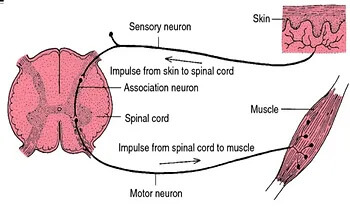PRIVATE HEALTH
Firstly it is important to point out that when seeing a practitioner at Praxis Physiotherapy, you will be able to use your private health insurance (PHI) towards the fee if you have appropriate cover (usually called ‘Extras’). It must be said that we think PHI for physiotherapy is an excellent investment for those that have it as a part of their cover. It must also be stated that whilst we offer HICAPS transactions onsite at all our clinics, we at Praxis Physiotherapy are not currently a member of any preferred provider schemes.
We are often asked why we aren’t so we have done this blog to outline some important information which outlines some things for you to consider before automatically choosing a clinic with a preferred provider status.
What is a preferred provider scheme?
Some PHI companies have created their own list of health providers which they recommend to their members. Preferred provider schemes take several different forms but include the following examples:
- Bupa / Medibank – Members First Extras / Provider
- HCF – More for Muscles
- NIB – Extra Cover Providers
These providers are generally marketed as being ‘preferred’ as though they have achieved this title through clinical excellence but in fact these are just practices who have agreed to sign a contract which allows the PHI to set the fee structure and reimbursements for the practice.
There are no minimum standards of practice, experience or quality of care required to qualify for these contracts. It is purely an agreement that the practice will charge those patients the amount the insurance company has set.
You might ask why a practice would do this? It is an easy way to gain exposure to many prospective new patients, so it can be an effective way to get your practice up and running or boost numbers.
What’s the problem here?
Although discounting services to get more patients to your business might be good to start with, and also good for the patients who will have a smaller gap to pay, problems occur relatively quickly when there are many patients coming to the clinic who are not paying a normal/typical fee. The cost of providing adequate length appointments with experienced staff generally is too great for the business to sustain.
Practices in these schemes may then be forced to make some difficult decisions about how they run their business, and generally these result in shorter appointment times or using less experienced staff who they can pay less (or both). The combination of these two things is a big concern to the allied health industry as it is likely to be detrimental to the quality of healthcare provided to the patient.
What can you do?
Remember that you have a choice!
If you are concerned about the small contribution your health fund makes for physiotherapy or other allied health, it is important you know that you can shop around for an insurer that better suits your needs. Some funds (usually the smaller not for profits) pay much better rebates for allied health. It is important to note also, that you can have hospital cover with one insurer, and your extras cover with another.
What does the Australian Physiotherapy Association (APA) say about preferred provider schemes?
This information is taken directly from their website:
“The Australian Physiotherapy Association remains concerned that health funds actively divert their members to network providers, regardless of existing therapeutic relationships.
The APA believes the term ‘preferred’ might make a patient think a practice is of a particular standard than those practices that are not preferred. This is not the case. By being a preferred provider, a physiotherapist simply elects to join the scheme and bring their fees in line with what the health funds mandate. We know this is a significant disadvantage to physiotherapists and that keeping fees close to market rates is essential to maintain the financial viability of a physiotherapy business.
We have raised this matter with the ACCC, which has not determined this is a matter for further investigation. We will continue to advocate for change when appropriate.”
In summary…
We at Praxis Physiotherapy believe that schemes such as these do not allow us to sustainably offer the expert services, longer appointment times (60mins for initials / 30mins subsequents), experienced staff and the physical environment that we do. We feel that compromising in any of these areas would not align with the values we set ourselves when we started our clinic. In short, we do not apologise for putting the needs of our patients above the bottom line and believe that in order to help you Prevent. Prepare. Perform, the requisite time, expertise and effort is required from your Praxis therapist.
Until next time…
Prevent. Prepare. Perform.
Team Praxis

Physiological
Changes in parasympathetic activity (as measured by heart rate, blood pressure and heart rate variability) and hormonal levels (as measured by cortisol levels) following massage result in a relaxation response.
Psychological
A reduction in anxiety and an improvement in mood state also cause relaxation, and has been shown prior to sports to help lower performance anxiety.
Ultimately, what the above proposed mechanisms translate into a series of studied benefits on specific conditions. According to the Massage and Myotherapy Australia website, massage has also been shown to help:
- Back pain
- Arthritis
- Insomnia
- Headaches
- Depression and anxiety
- Constipation
- High blood pressure
- Chronic pain
All in all, massage provides good bang for buck when used in the appropriate setting. Our mantra at Praxis is Prevent Prepare Perform and as physiotherapists, we work in tandem with our qualified massage therapists to deliver the best results for a wide variety of conditions. Whilst, physiotherapy is focussed on the diagnosis and treatment of acute or chronic injuries, remedial massage enables a little more hands on time to truly address issues that our physiotherapists may have identified in their sessions. Further, massages offers a great medium for regular ‘tune-ups’ when the rigours of training and working take their toll.
We ensure that your massage experience is not only blissful, but productive for your rehabilitation as well. So if you have been swayed by the evidence, or just looking for that little reward, we are here to help!
Until next time – Prevent. Prepare. Perform
References:
- Hopper D, Deacon S, Das S, et al. Dynamic soft tissue mobilization increases hamstring flexibility in healthy male subjects. Br J Sports Med. 2004;39:594–598
- Weerapong, P., Hume, P.A. & Kolt, G.S. The mechanisms of massage and effects on performance, muscle recovery and injury prevention. Sports Med 2005; 35: 235
- Morelli M, Seaborne DE, Sullivan SJ. Changes in h-reflex amplitude during massage of triceps surae in healthy subjects.J Orthop Sports Phys Ther. 1990;12(2):55-9.
- Arroyo-Morales M1, Fernández-Lao C, Ariza-García A, Toro-Velasco C, Winters M, Díaz-Rodríguez L, Cantarero-Villanueva I, Huijbregts P, Fernández-De-las-Peñas C. Psychophysiological effects of preperformance massage before isokinetic exercise. J Strength Cond Res. 2011 Feb;25(2):481-8.
https://www.massagemyotherapy.com.au/Home

